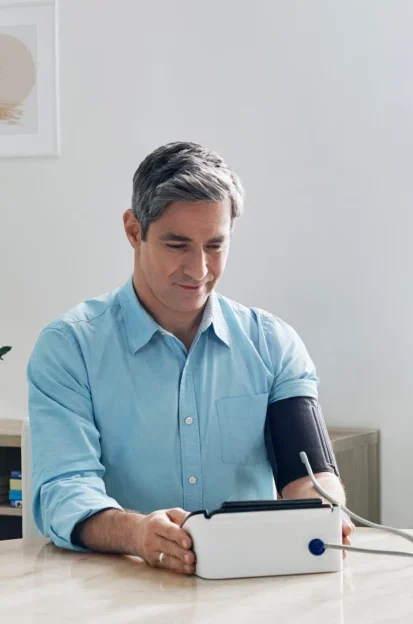An electrocardiogram (also called ECG) is a test that measures the electrical activity of the heartbeat. With each beat, an electrical impulse (or “wave”) travels through the heart. This wave causes the muscle to squeeze and pump blood from the heart. Doctors can use this information to detect cardiac conditions such as heart rhythm irregularities.
Read on to find relevant information about blood pressure devices, or click on “see all” to discover the wide range of devices that OMRON has for you.
The OMRON Complete is an accurate and easy blood pressure monitor with ECG recording. This monitor records measurements and tracks data.

Atrial fibrillation (also called AFib) is the most common form of irregular heart rhythm that often occurs in combination with hypertension and could lead to a stroke if left unchecked.

For people already measuring blood pressure at home as part of their hypertensive care, regular electrocardiogram (ECG) screening can help to identify heart rhythm irregularities that can lead to more serious cardiac problems.

People with high blood pressure have a higher risk—40% in women and 50% in men—of atrial fibrillation (AFib), both of which are leading identifiers of stroke. AFib is associated with a 5x greater risk of stroke, but effective treatment may reduce this risk. In the early stages of AFib, the condition recurs less frequently and is more difficult to detect.